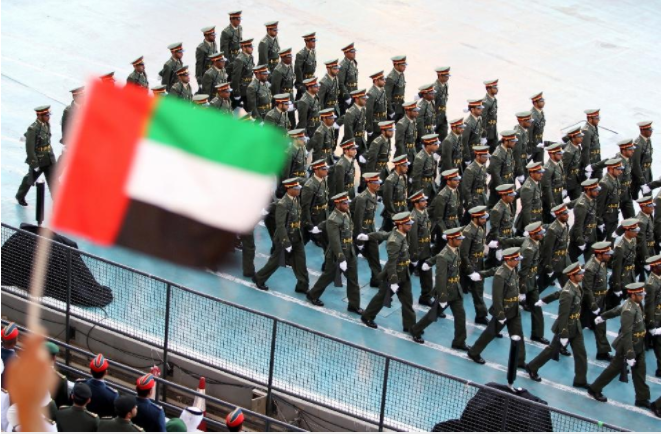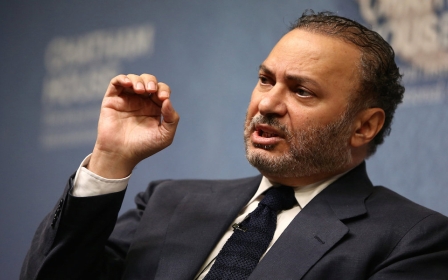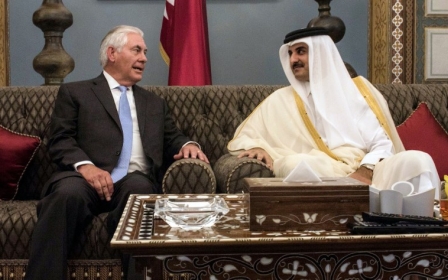UAE claims meddling by Qatar led to al-Qaeda attack in Yemen

A senior diplomat from the United Arab Emirates has claimed that Qatari interference led to an al-Qaeda suicide attack against Emirati soldiers inside Yemen.
Omar Saif Ghobash, the UAE's ambassador to Russia, told the BBC that his government had a specific recording which revealed Qatar working with al-Qaeda in Yemen to sabotage counter-terror operations inside the country.
This latest claim comes after Saudi Arabia, Bahrain, the UAE and Egypt presented a series of principles in Cairo that it hoped Qatar would agree to in order to lift a blockade imposed on the gas-rich country.
"We have information that our Qatari allies informed al-Qaeda of our precise locations and what we were planning to do (inside Yemen)," said Ghobash. "We then received four suicide bombers at our door... and had a number of our soldiers injured."
We have been hearing a lot of talk but we have not seen any evidence and they haven't shown us or any of us any of this evidence
- Qatar spokesman, Saif al-Thani
Sheikh Saif al-Thani, who is Qatar's director of communications, did not comment on these specific claims but demanded the UAE present the evidence it had via the Gulf Cooperation Council.
"We have been hearing a lot of talk but we have not seen any evidence and they haven't shown us or any of us any of this evidence," he told the BBC.
"If there is any information, which is not true, they can either go through certain mechanisms inside the GCC Council which they can go through, but didn't use."
The new set of principles published by the four countries opposed to Qatar includes a commitment to combat extremism, to prohibit acts of incitement and to not interfere in the internal affairs of other states.
It was published after the coalition of Gulf countries had failed to get Qatar to agree to its original set of demands which included the shutting down of the Al-Jazeera network.
Thani told the BBC that Qatar had not received these principles via its official mediator in Kuwait, but that it was committed to meeting its foes on the negotiating table.
"Everything we have seen has been portrayed through their media, and we have not had anything from them," said Thani.
Despite a complete blockade on the country by its neighbours, Qatar has continued to deny accusations that it has had any involvement in helping finance terrorism in the region.
It also became the first country in the Gulf to sign up to an agreement with America to combat the financing of terrorism.
New MEE newsletter: Jerusalem Dispatch
Sign up to get the latest insights and analysis on Israel-Palestine, alongside Turkey Unpacked and other MEE newsletters
Middle East Eye delivers independent and unrivalled coverage and analysis of the Middle East, North Africa and beyond. To learn more about republishing this content and the associated fees, please fill out this form. More about MEE can be found here.




